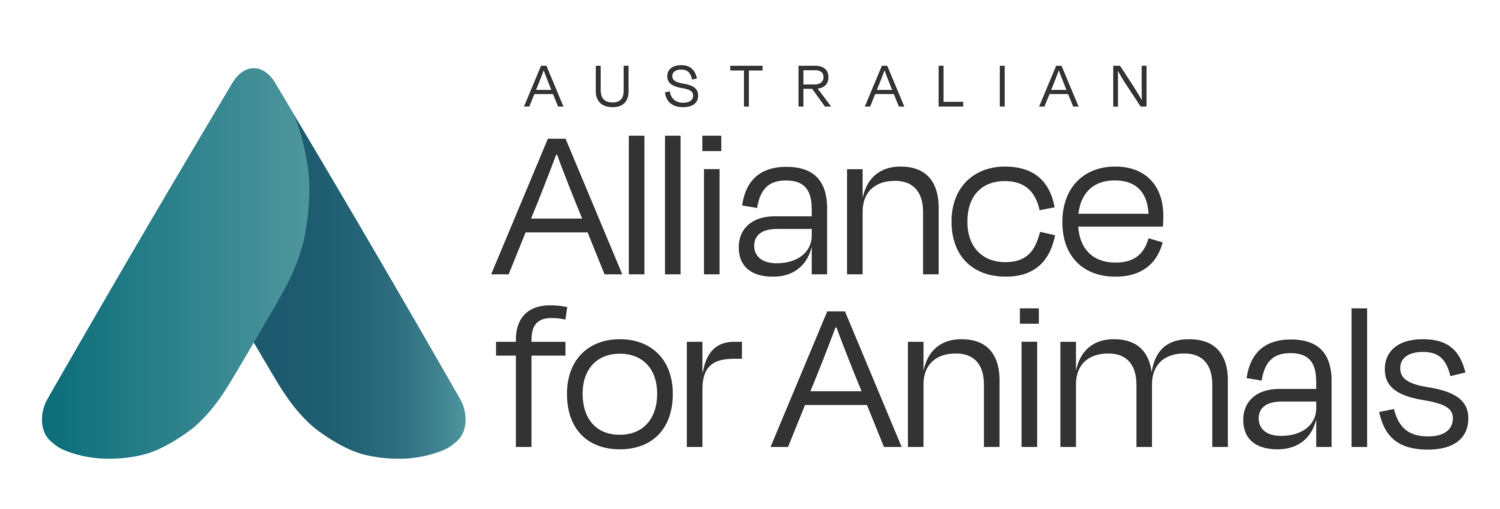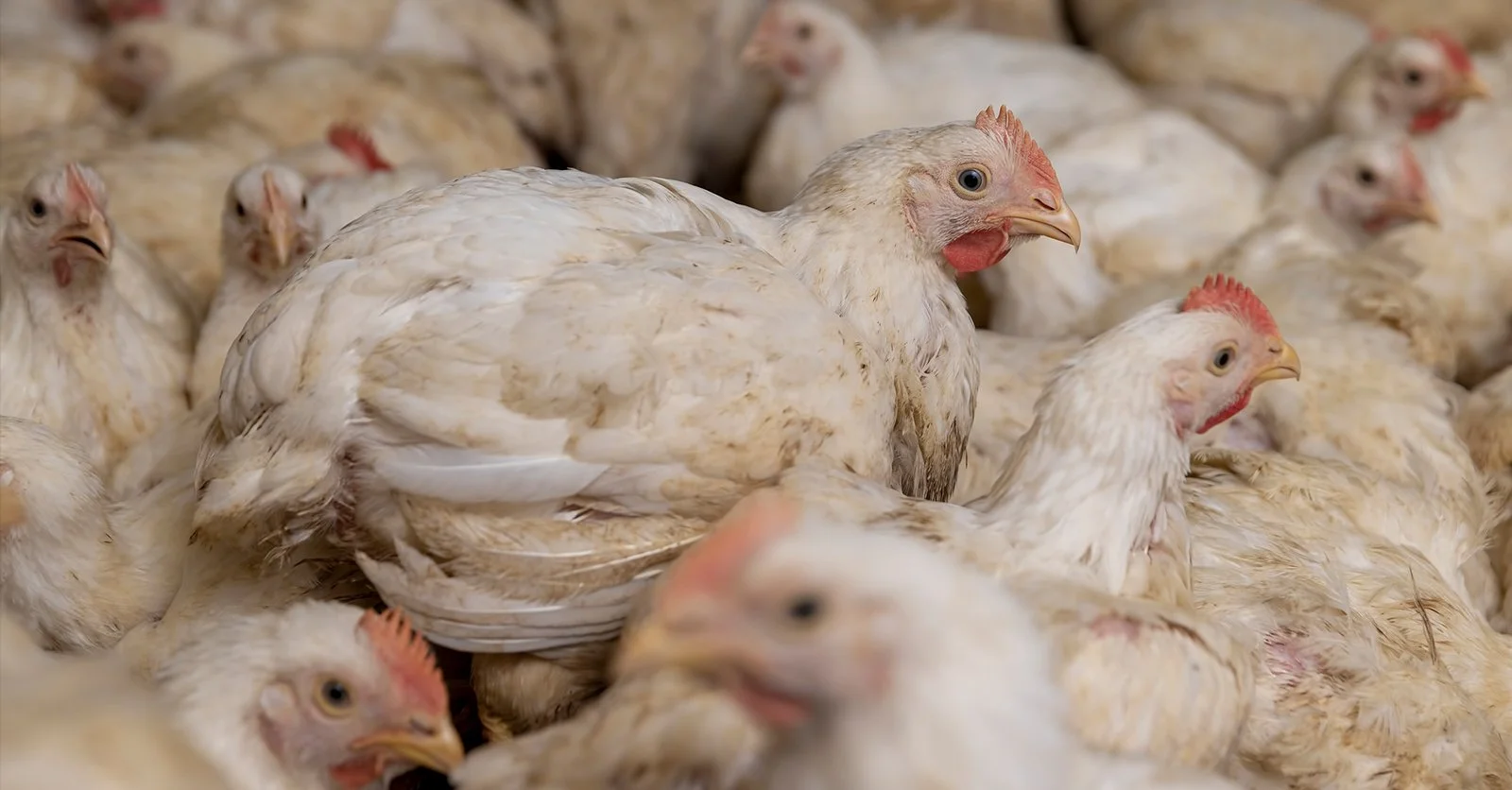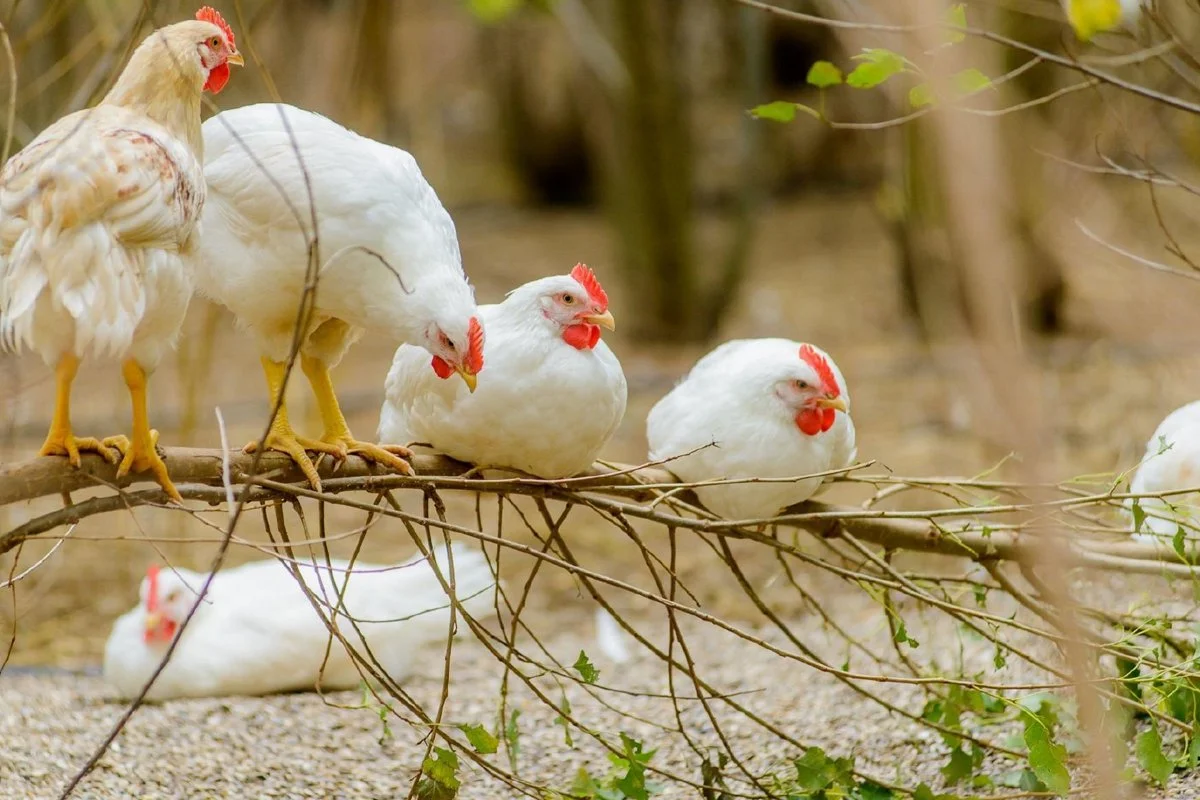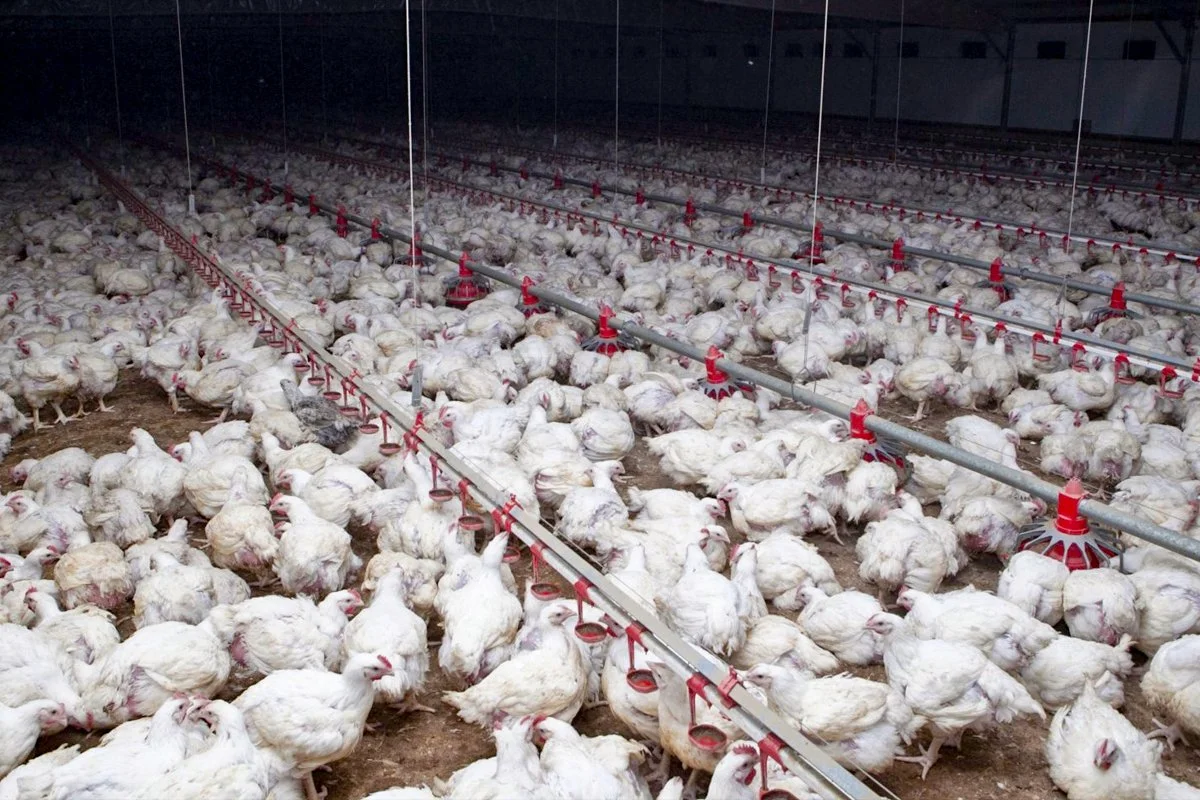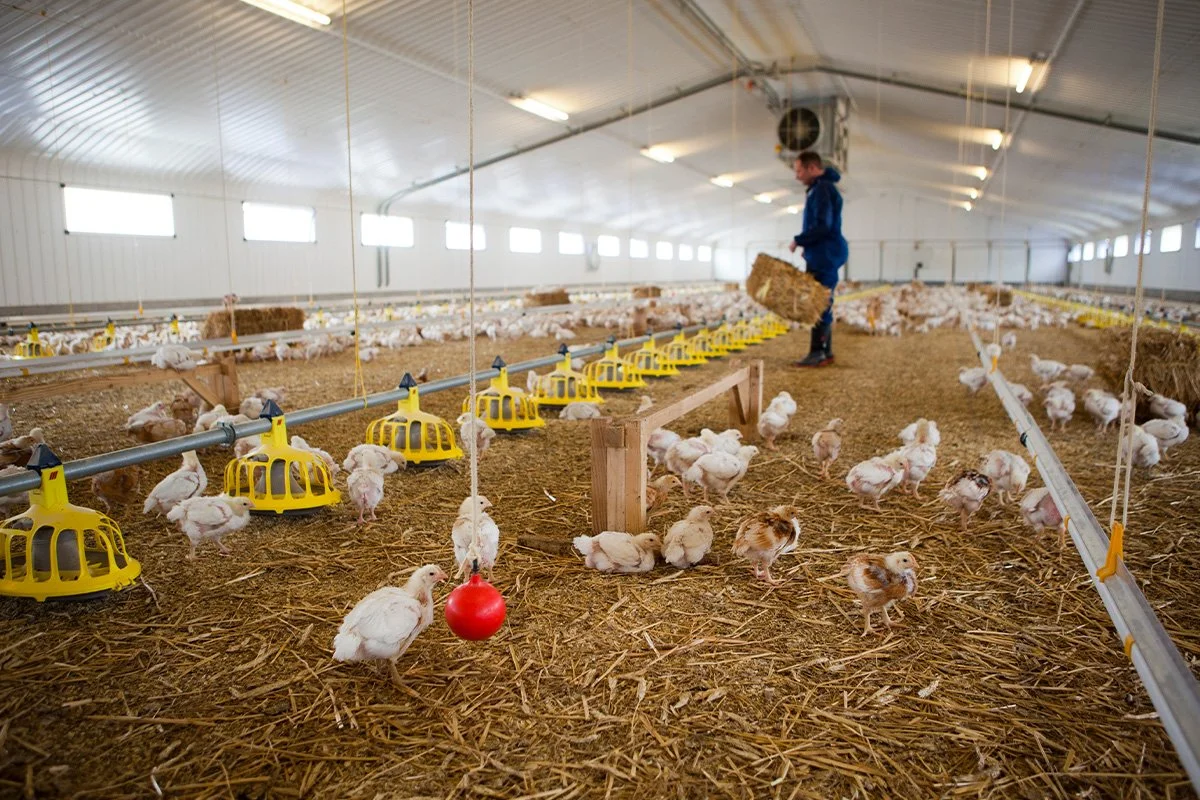How to help chickens this World Animal Day
Every World Animal Day (October 4) calls on people to pause and reflect on the animals who share our world – recognising their sentience, individuality, and capacity to thrive or to suffer. While it is a day to recognise all animals, chickens are often overlooked. With more chickens raised for meat than any other land animal in Australia, it’s time to bring them into the spotlight.
Shining a light on the most overlooked farmed animal.
Each year, more than 700 million chickens are raised and slaughtered for meat in Australia. Despite their vast numbers, most of us will never have the chance to meet one. We see them only as products on supermarket shelves, not as individuals with rich inner lives.
Unlike dogs and cats, chickens rarely share our homes. Their lives are hidden away in large sheds and decades of selective breeding have altered their appearance from their wild ancestors. This distance and disconnection make it easy to underestimate and overlook their complexity.
Chickens are extraordinary animals. They:
can recognise multiple individual faces – chicken and human alike
develop complex social hierarchies and form close bonds with others
solve problems, understand cause and effect, and even delay gratification for a better reward
Use sophisticated communication and console flock-mates who are in distress, showing empathy.
But under our modern farming practices, they are not given the chance to express themselves.
Credit: FOUR PAWS
Chickens welfare standards are outdated.
Australia’s current chicken welfare standards fall short of what science, ethics, and community expectation demand.
In a natural setting, chickens would spend most of their day exploring, scratching, pecking, and dustbathing to keep their feathers clean and their curious minds active. These behaviours are not optional – they’re essential for their physical and psychological wellbeing.
Under modern farming conditions, chickens are constantly frustrated. The industry currently breeds fast-growing chickens who become so top-heavy that they can find it hard to stand, let alone walk around. They reach slaughter weight in just 5 to 6 weeks, and the rapid growth causes constant discomfort, painful leg deformities and, in some cases, even organ failure.
Chickens raised for meat spend their short lives locked inside dim, overcrowded sheds, without natural light, fresh air, or enough space to move freely. Unable to perch, many spend much of their lives sitting in damp litter that can cause ammonia burns on their legs and chest.
At the end of their lives, when they reach the slaughterhouse, many of these chickens will be shackled upside down by their legs while fully conscious. It is a painful and frightening process. In their distressed state, some birds miss out on being effectively stunned before slaughter.
Inside a typical chicken farm.
Image: Animal Liberation
How can we do better for chickens?
The good news is that a solution already exists. The Better Chicken Commitment (BCC) is an evidence-based set of standards designed to address the most serious welfare issues facing chickens raised for meat.
The BCC calls for:
healthier, slower-growing breeds, who can walk properly and live without constant pain
Better living conditions with more space, light, and enrichment, so chickens can dustbathe, forage, and rest peacefully
More humane slaughter practices, eliminating live shackling and requiring effective stunning before death.
This approach is already working overseas. Over 650 food businesses across Europe and North America have committed to the BCC to date, and have already made the switch to BCC standards for hundreds of millions of chickens.
Australia is lagging. That’s why the Alliance launched the Better Chicken Australia campaign, calling on food businesses to sign on to the BCC. With 700 million chickens raised each year, a shift in the standards will change millions of lives. This is where we need your help.
A BCC approved chicken farm in the UK.
Credit: RSPCA UK RSPCA Assured.
Take action for chickens this World Animal Day.
World Animal Day is about celebrating animals and speaking up for those who need us most. Chickens are sentient, intelligent animals whose suffering is hidden inside sheds, but together, we can change their future.
Your support for Better Chicken Australia this World Animal Day means:
More pressure on food businesses to adopt higher welfare standards
Greater awareness nationwide of what chickens endure
A tangible shift toward a system where chickens can live healthier, more natural lives.
